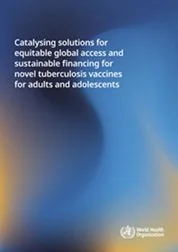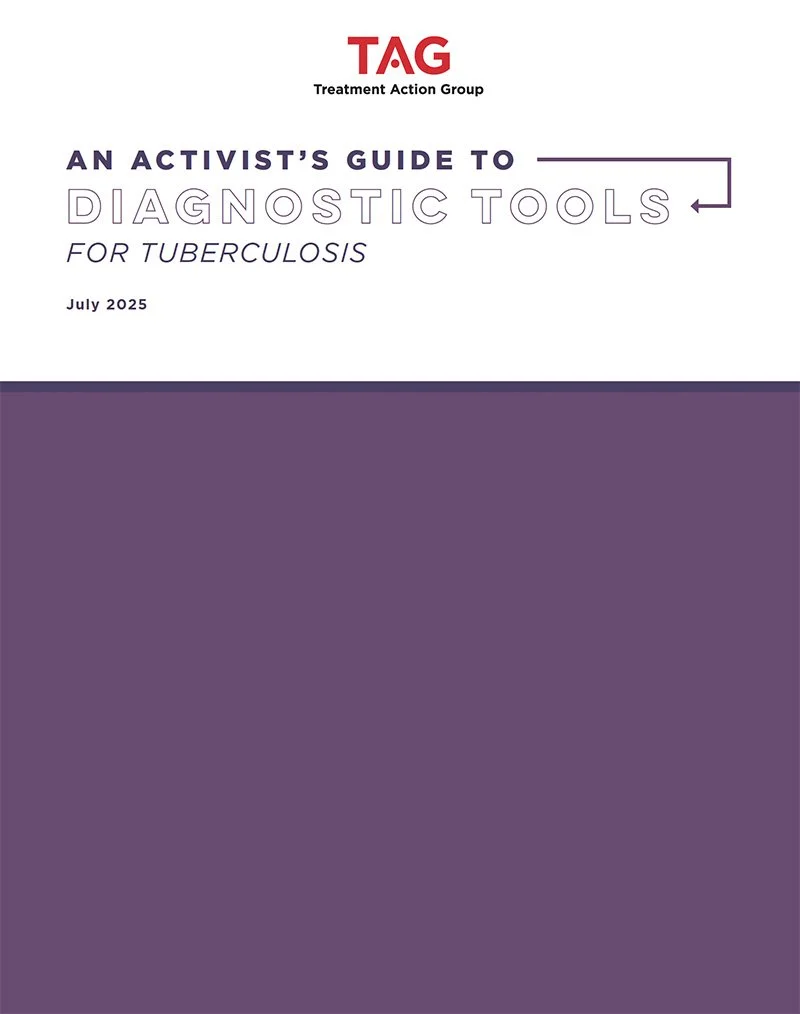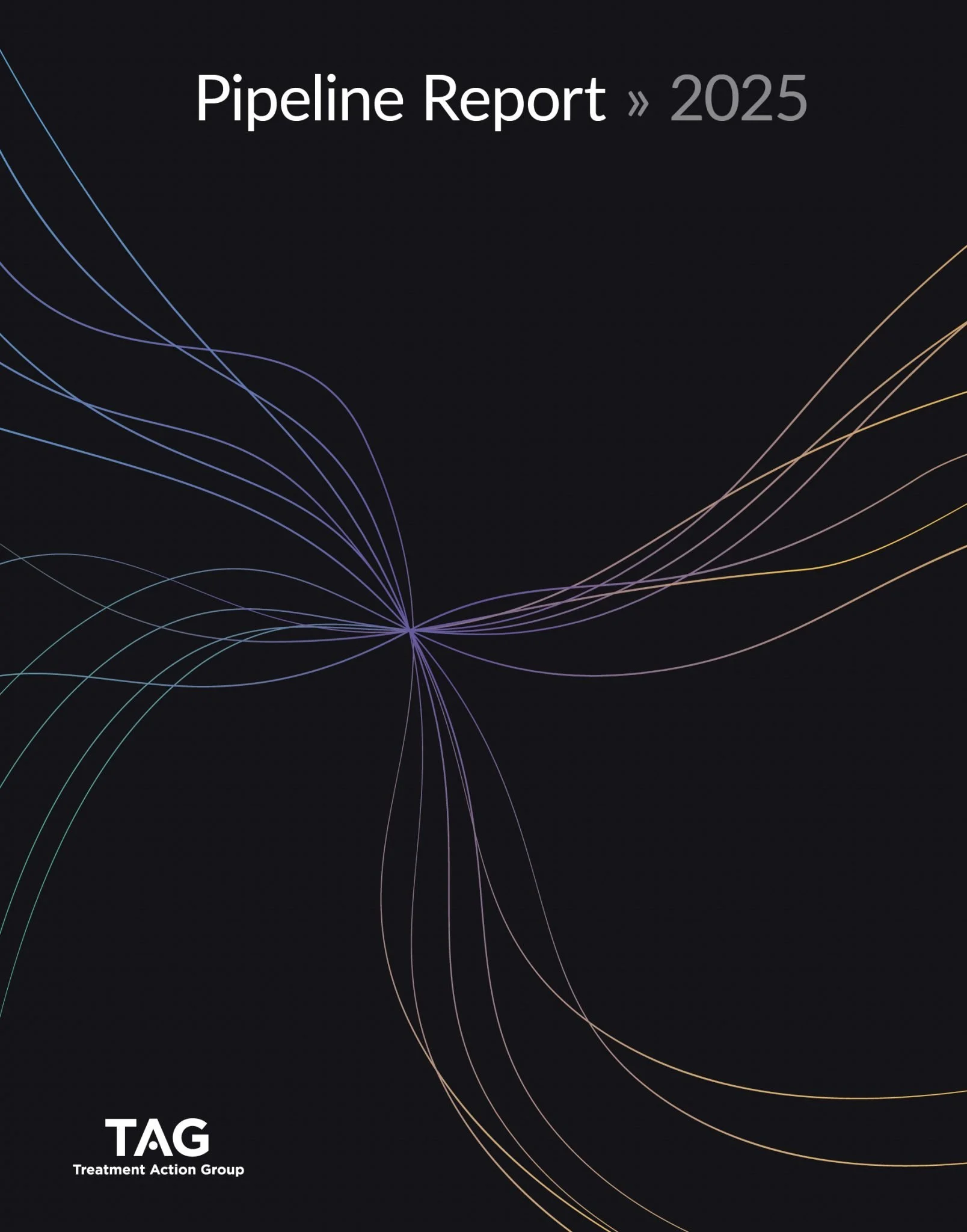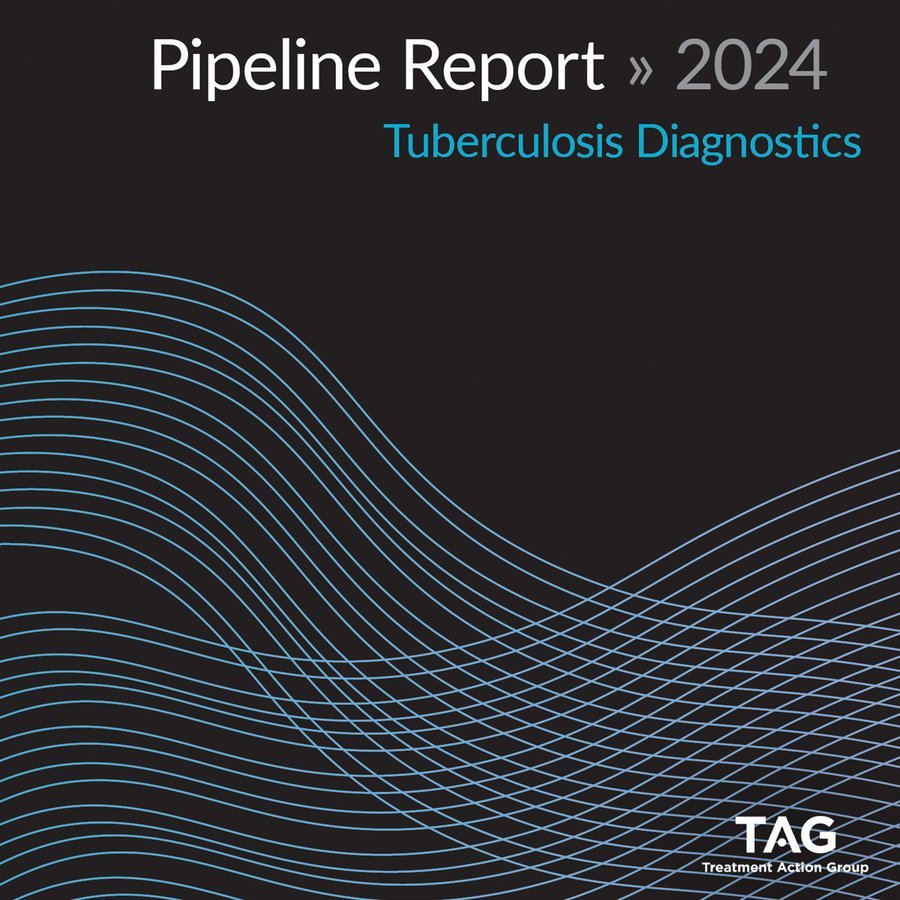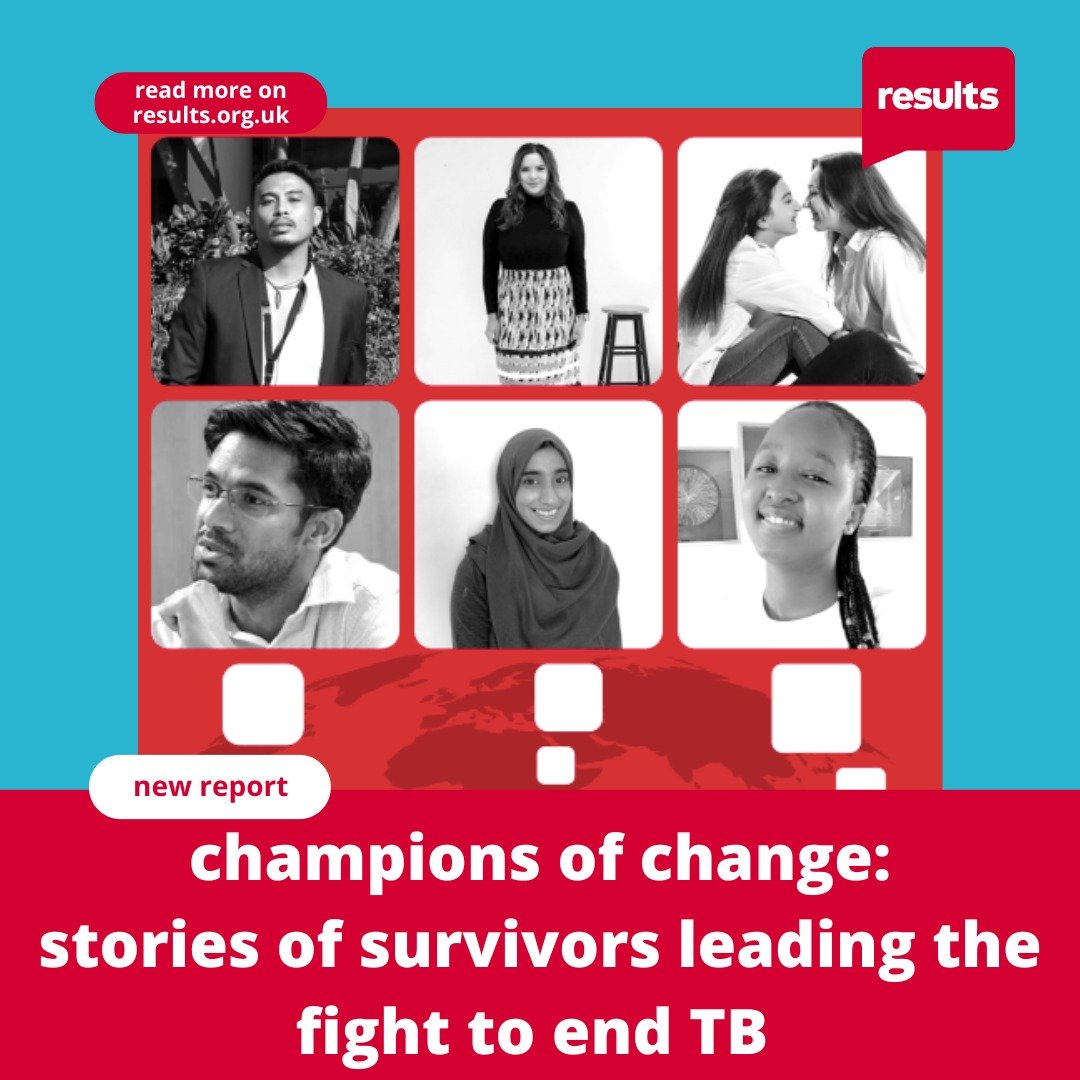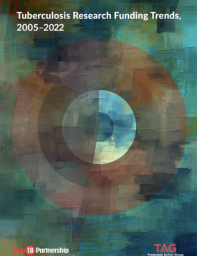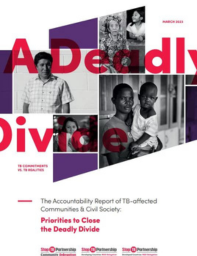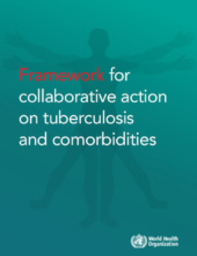Global tuberculosis report 2025
The WHO Global tuberculosis report 2025 provides a comprehensive and up-to-date assessment of the TB epidemic, and of progress in prevention, diagnosis and treatment of the disease, at global, regional and country levels. This is done in the context of global TB commitments, strategies and targets.
The 2025 edition of the report is based primarily on data gathered by WHO from national ministries of health in annual rounds of data collection. In 2025, 184 countries and areas (out of 215) with more than 99% of the world’s population and TB cases reported data.
This report was developed by the WHO TB Vaccine Accelerator Finance and Access working group, co-led by WHO, Gavi and the Government of South Africa. It sets out the working group’s shared vision for equitable access to novel TB vaccines and will advance a shared understanding of the current landscape and its possible evolution in the future. It identifies six urgently needed solutions to accelerate access and financing and highlights the roles of different stakeholders to support the implementation of these solutions.
An Activist’s Guide to Diagnostic Tools for Tuberculosis 2025
The World Health Organization (WHO) guidelines for diagnosing TB have evolved along with available technologies and tools that are increasingly accurate, simple, and efficient at detecting TB and resistance to a wider range of TB drugs. An Activist’s Guide to Diagnostic Tools for Tuberculosis details the latest WHO recommendations for TB screening and diagnosis, the array of available diagnostic tools and how they should be optimally used in country programs, key access considerations, and actions activists can take to ensure that all people at risk of TB receive quality TB diagnostic testing. This 2025 update to the guide builds on a previous version released in 2020, adding classes of tests and specific technologies that have since been reviewed and endorsed by the WHO.
This annual review provides an overview of research and development of innovations for diagnosing, preventing, treating, and curing HIV, hepatitis C virus (HCV), and tuberculosis (TB).
Deadly gaps: Don’t turn away from saving lives
In September 2025, the Global Fund, the main funder of a worldwide response to HIV, tuberculosis, and malaria, will host its eighth replenishment conference, where donor countries will make pledges to fund its vital, life-saving work.
Ahead of the conference, Médecins Sans Frontières (MSF) has released a report based on their experience with the communities their serve. This report highlights the challenges this replenishment faces, including the impact of shrinking donor support. This report references findings from Burundi, Central African Republic (CAR), Democratic Republic of Congo (DRC), Guinea, Kenya, Malawi, Mali, Mozambique, Pakistan, Philippines, South Sudan, and Sudan.
TB Diagnostics Pipeline Report
Treatment Action Group’s annual review provides an overview of research and development of innovations for diagnosing, preventing, treating, and curing HIV, hepatitis C virus (HCV), and tuberculosis (TB).
Champions of change: stories of survivors leading the fight to end TB
In 2024, Results UK interviewed six remarkable people across four continents who have overcome TB and are now advocates for change. This collection is their stories, the realities they faced in managing this devastating disease, and how they learned to advocate for themselves when no one else would and, in doing so, became beacons of hope for other people affected by TB. Their stories are shared here to help change the public perception of TB, de-stigmatise the condition, and promote person-centred, gender and rights-responsive care and treatment.
Tuberculosis Research Funding Trends 2005 — 2023
Tuberculosis Research Funding Trends 2005—2023, the 19th annual installment of the series by Treatment Action Group (TAG) and Stop TB Partnership assessing the global state of TB R&D, is based on a survey of biomedical research funders conducted by TAG with support from Stop TB Partnership. The report presents new data on funding for TB R&D in 2023, analyzes trends in spending since 2005, and takes a close look at funding for research to develop new TB vaccines.
Global Tuberculosis Report 2024
The WHO Global tuberculosis report 2024 provides a comprehensive and up-to-date assessment of the TB epidemic and of progress in prevention, diagnosis and treatment of the disease, at global, regional and country levels. This is done in the context of global TB commitments, strategies and targets.
The 2024 edition of the report is, as usual, based primarily on data gathered by WHO from national ministries of health in annual rounds of data collection. In 2024, 193 countries and areas with more than 99% of the world’s population and TB cases reported data.
Investing in innovation and equitable access to end the tuberculosis epidemic
Despite being preventable and curable, TB has been neglected, resulting in inadequate political commitment and insufficient funding. This report highlights the critical need for global investment in research and development to drive the innovation required to end TB once and for all. From developing better vaccines to ensuring equitable access to lifesaving tools, the path forward demands sustained funding, stronger partnerships, and policies that prioritize public health over profit.
At this very moment, countries are applying for funding from the Global Fund’s Grant Cycle 7 (GC7) to put to use the resources raised at the 2022 pledging conference. Worrying gaps between the need and the money available are already emerging at well over US$1 billion – for Tuberculosis (TB) alone. “A Different Kind of Gap” explores what these funding gaps mean for the fight against TB and what happens if they aren’t filled.
Tuberculosis Research Funding Trends 2005 — 2022
While global funding for TB R&D topped $1 billion in both 2021 and 2022, this amount is insufficient to produce and roll out the tools needed to find, treat, and prevent the 10 million new cases of TB each year. Spending on TB vaccine R&D fell a whopping 80% short of targets set by Stop TB’s Global Plan to End TB in 2018, with funding for drugs and diagnostics lagging by 75% and 35% respectively.
The Global Tuberculosis Report 2023
The WHO Global Tuberculosis Report 2023 provides a comprehensive and up-to-date assessment of the TB epidemic, and of progress in prevention, diagnosis and treatment of the disease, at global, regional and country levels. This is done in the context of global TB commitments, strategies and targets.
The Global Fund Results Report 2023
2022 was a year of rapid acceleration in the Global Fund partnership’s fight against HIV, TB and malaria. Programs to tackle the three diseases registered a solid recovery after being disrupted by the COVID-19 pandemic.
The Global Fund Results Report 2023 details how our investments continued to deliver lifesaving services for people affected by HIV, TB and malaria. Our partnership also played a critical role in supporting countries and communities to accelerate their recovery from the COVID-19 pandemic and build resilient and sustainable systems for health that can respond to current and future health threats.
Every day, nearly 4,400 people die from a disease that is both preventable and curable, resulting in approximately 1.6 million lives lost yearly. As deaths from COVID-19 decline, TB is reclaiming its title as the world’s number one infectious disease killer. Too often, those who die are from our most vulnerable and marginalized communities. While there have been some advancements, the overall response to eliminate TB remains outdated, mired with complacency, and often at odds with basic human rights.
This accountability report is written by, and in solidarity with TB-affected communities and civil society to galvanize a transformative response to end TB.
An Investment Case for New Tuberculosis Vaccines
This document summarizes the results of the WHO-commissioned full value proposition for new tuberculosis (TB) vaccines. The assessment was commissioned to provide early evidence for national and global decision-makers involved in TB vaccine development and implementation, who include stakeholders involved in vaccine research, financing, regulation and policy-making, manufacturing, introduction and procurement. The goal is to accelerate development of effective vaccines against TB and their rapid introduction into countries.
New TB Vaccines Needed to Tackle AMR
The TB Vaccine Advocacy Roadmap (TB Vax ARM) is pleased to share a new brief calling on decision-makers to prioritize TB vaccine R&D in all global health and antimicrobial resistance (AMR) agendas. In this brief, we draw on the latest research in health and economic modelling to demonstrate how new TB vaccines could significantly help control drug-resistant TB, in a cost-effective and affordable way
The Global Fund TB Strategic Initiative ‘Innovative Approaches to Finding Missing People with TB’ 2021-2023 aims to support countries to address specific barriers to finding and treating missing people with TB and scale-up innovative health facility and community approaches to accelerate TB case finding and treatment, especially for key populations and vulnerable groups. This includes finding and treating people with drug-susceptible (DS-TB), drug-resistant TB (DR-TB), children, and adolescents.
DR-TB Drugs Under the Microscope, 8th Edition
TB was the leading cause of death from a single infectious agent until the COVID pandemic. The number of people newly diagnosed with TB in 2020 fell by 18% from the previous year due to disruptions to health systems and services caused by the pandemic, with only a partial recovery in 2021. As a result, in 2021, only one in three people with drug-resistant TB (DR-TB) received treatment for the disease.
2022 Report on TB Research Funding Trends
For the first time in history, funding for tuberculosis (TB) research and development (R&D) hit a billion dollars worldwide in 2021. This marked a significant milestone that nonetheless falls significantly short of what’s needed to stay on track to end TB, according to a new report by Treatment Action Group (TAG) and the Stop TB Partnership.
Framework for Collaborative Action on Tuberculosis and Comorbidities
Globally, tuberculosis (TB) remains one of the leading causes of death due to a single infectious agent. The main TB comorbidities and health-related risk factors include human immunodeficiency virus (HIV), disorders due to the use of alcohol, undernutrition, tobacco smoking, diabetes mellitus, mental disorders, silicosis and viral hepatitis. Addressing health-related risk factors and comorbidities among people with TB is essential for ending the TB epidemic. To achieve this, care should be organized around the end user, rather than around the respective diseases.
The WHO Global Tuberculosis Report 2022 provides a comprehensive and up-to-date assessment of the TB epidemic, and of progress in prevention, diagnosis and treatment of the disease, at global, regional and country levels. This is done in the context of global TB commitments, strategies and targets.
The 2022 edition of the report is as usual, based primarily on data gathered by WHO from national ministries of health in annual rounds of data collection. In 2022, 202 countries and territories with more than 99% of the world’s population and TB cases reported data.
Neglected Disease Research and Development: New Perspectives
Each year since 2007, G-FINDER has provided policy-makers, donors, researchers and industry with a comprehensive analysis of global investment into research and development of new products to prevent, diagnose, control or cure neglected diseases in developing countries, making it the gold standard in tracking and reporting global funding for neglected disease R&D. This year’s report, the fourteenth overall, focuses on investments made in participants’ 2020 financial year.
Tuberculosis Research Funding Trends, 2005-2020
The new Tuberculosis Research Funding Trends, 2005–2020 report from Treatment Action Group (TAG) and the Stop TB Partnership finds that global funding for TB research totaled US$915 million in 2020 - less than half the goal of US$2 billion set forth by participating country governments at the 2018 United Nations High-Level Meeting on TB.
The report presents new data on 2020 funding for TB research and development (R&D) and analyzes trends in investment since 2005. Despite the toll TB takes around the world, TB funding has been flat since 2018, and in 2020 TB received less than 1% of the amount invested in COVID-19 R&D.
Welcome to the 2022 Pipeline Report. This annual review provides an overview of research and development of innovations for diagnosing, preventing, treating, and curing HIV, hepatitis C virus (HCV), and tuberculosis (TB).
State of Inequality: HIV, tuberculosis and malaria
A new report from the World Health Organization and the Global Fund to Fight AIDS, Tuberculosis and Malaria systematically assesses the global state of inequality for HIV, tuberculosis and malaria. The report warns that inequalities are blocking progress towards ending AIDS, TB and malaria and calls on better identification and understanding of underlying inequalities and their consequences.
More Reports
Global Tuberculosis Report 2021
Each year, the WHO Global TB Report provides a comprehensive and up-to-date assessment of the TB epidemic, and of progress in prevention, diagnosis and treatment of the disease, at global, regional and country levels. This is done in the context of global TB commitments, strategies and targets.
The 2021 Global TB report confirms the devastating impact that COVID-19 has had on TB efforts globally - reversing years of global progress in tackling tuberculosis and for the first time in over a decade, resulting in an increase in TB deaths.
The report calls on countries to put in place urgent measures to restore access to essential TB services. It further calls for a doubling of investments in TB research and innovation as well as concerted action across the health sector and others to address the social, environmental and economic determinants of TB and its consequences.
One Year of COVID-19 & its Impact on Private Provider Engagement for TB
The COVID-19 pandemic has impacted health systems and health programs across the world. For tuberculosis (TB), it is predicted to set back progress by at least twelve years. Public private mix (PPM) is a collaborative approach to engage private providers in quality TB care. It has made a vital contribution to reach End TB targets with a ten-fold rise in TB notifications from private providers between 2012 and 2019. This is due in large part to the efforts of intermediary agencies, which aggregate demand from private providers. The COVID-19 pandemic has put these gains at risk over the past year.
In this rapid assessment, representatives of 15 intermediary agencies from seven countries that are considered the highest priority for TB PPM (the Big Seven) share their views on the impact of COVID-19 on their programs, the private providers operating under their PPM schemes, and their private TB clients.
Activating A Human Rights-Based TB Response
A human rights-based TB response supports and enhances public health measures and good clinical practice. The approach is founded on the dignity and autonomy of people affected by TB and the critical role they must play in all aspects of the disease response. A rights-based approach places special focus on TB key and vulnerable populations, it demands a gender-sensitive response, and it leverages existing law at international, regional, and national levels to strengthen the response. This includes the rights to health, nondiscrimination, privacy and confidentiality, information, liberty, and others. Respect for these human rights promotes the health and well-being of individuals and, in doing so, protects the public’s health.
Taking a cross sectoral approach, Access Alliance Multicultural Health and Community Services, engaged representatives from primary care, settlement, public health, and community members from three populations to address the issue of stigma and its impact on tuberculosis (TB) care and support.
Governance of TB Programmes: An Assessment of Practices in 22 Countries
Strong TB governance, inclusive of communities and human rights, is critical for strong national TB programs (NTPs). The Stop TB Partnership, with support of USAID, recently launched a survey and analysis on the governance of TB programs across 22 countries.
This report focuses on assessing the governance of NTPs at the national level. The purpose of the assessment is to enable policy-makers and NTP managers to take actions to achieve the benchmarks identified in the report and scale up good practices, and to serve as an advocacy tool that NTP managers and civil society can employ to improve various governance components.
Impact of Integrating Mental Health Services on HIV and TB Outcomes
It is increasingly acknowledged that mental health is a risk factor for HIV and TB and can negatively impact the course of the disease and treatment, and that living with HIV and/or TB is a significant risk factor for a decline in an individual’s mental health and developing psychiatric illness. New research commissioned by United for Global Mental Health (UGMH) now demonstrates what has been long suspected: integrating basic mental health and psychosocial services into HIV and TB programmes will not only help millions of vulnerable people with ill mental health, but contribute ending these pandemics much quicker, it does not need to be expensive.
Neglected Disease Research and Development
Data on global investment in neglected disease R&D is collected through the G-FINDER survey and analysed in our annual G-FINDER reports, which describe how R&D investment is allocated across diseases and product types, funding trends over time, and potential gaps in funding.
The 2020 G-FINDER report covers neglected disease R&D funding from the 2019 financial year, immediately prior to the global COVID-19 pandemic, and includes funding data for 36 neglected diseases. The report supplements the headline funding figures available from the G-FINDER data portal with a trend analysis that takes into account the impact of COVID-related changes in survey participation.
COVID-19 and Effects on HIV and TB services
The effects of the COVID-19 pandemic, including resource reallocation and increasing poverty, has seen and will see numerous effects on both HIV and TB.
This publication quantifies the devastating effects the pandemic is having throughout Eastern Europe, Central Asia, and the Balkans.
The Impact of COVID-19 on HIV, TB and Malaria
COVID-19 has massively disrupted health systems and health service delivery for HIV, TB and malaria in low- and middle-income countries in Africa and Asia in 2020. The report highlights the urgent need to scale up the adaptive measures that health facilities adopted to continue the fight against HIV, TB, malaria, to ramp up delivery of critical supplies for the COVID-19 response, and prevent health care systems and community responses from collapse.
The 'Gender and TB: A Stop TB Partnership Paper' synthesize what is known about gender and TB burden, care and treatment outcomes.
It notes that gender blind TB programming can result in the reinforcement and perpetuation of harmful societal gender norms, which in turn, undermine health for all.
How Can We End the TB Epidemic? Lessons From Around the World
The new report demonstrates how key successes from six locations can serve as a guide for TB elimination on a global scale. Each case study provides a TB surveillance timeline as well as crucial policy changes, local leadership and public health interventions – inflection points – that contributed to successes.
This report documents how there is a major gap between the targets endorsed by heads of state and governments, and the results achieved. This is felt most acutely within communities, where it results in deaths and suffering. A Deadly Divide is informed by extensive inputs from TB-affected communities and civil societies worldwide.
TB Research Funding Trends, 2005-2019
This report presents new data on 2019 funding for TB research and development (R&D) and analyzes trends in investment since 2005. The figures for 2019 provide a last look at funding for TB R&D before the devastating emergence of the COVID-19 pandemic in 2020.
The annual TAG pipeline reports provide an overview of research and development of innovations for TB diagnostics, preventive therapy, treatment, and vaccines.
WHO has published a global TB report every year since 1997. The main aim of the report is to provide a comprehensive and up-to-date assessment of the TB epidemic, and of progress in prevention, diagnosis and treatment of the disease, at global, regional and country levels.
This new report summarises findings from the 4th survey of national TB policies in the Step Up for TB series. It also reports on some of the barriers to policy adoption and implementation identified by governments and offers an insight into the ambitions of governments around the world regarding the care they aim to provide.
The Impact of COVID-19 on the TB Epidemic: a Community Perspective
Ten civil societies came together to evaluate the impact of COVID-19 on TB programs and services around the world.
Declaration of the Rights of People Affected by TB
Many of the factors that increase a person’s vulnerability to TB or reduce their access to services to prevent, diagnose and treat TB are associated with their ability to realize their human rights.
Study on Tuberculosis and Indigenous Peoples
In 2019, the United Nations Economic and Social Council conducted a survey on tuberculosis and Indigenous Peoples. This study aims to take stock of the disease among Indigenous peoples, highlight the urgent need to take action to reverse the current trend, and identify the issues to be taken into account in order to eliminate tuberculosis by 2030, which is one of the Sustainable Development Goals established by the United Nations in 2015.

